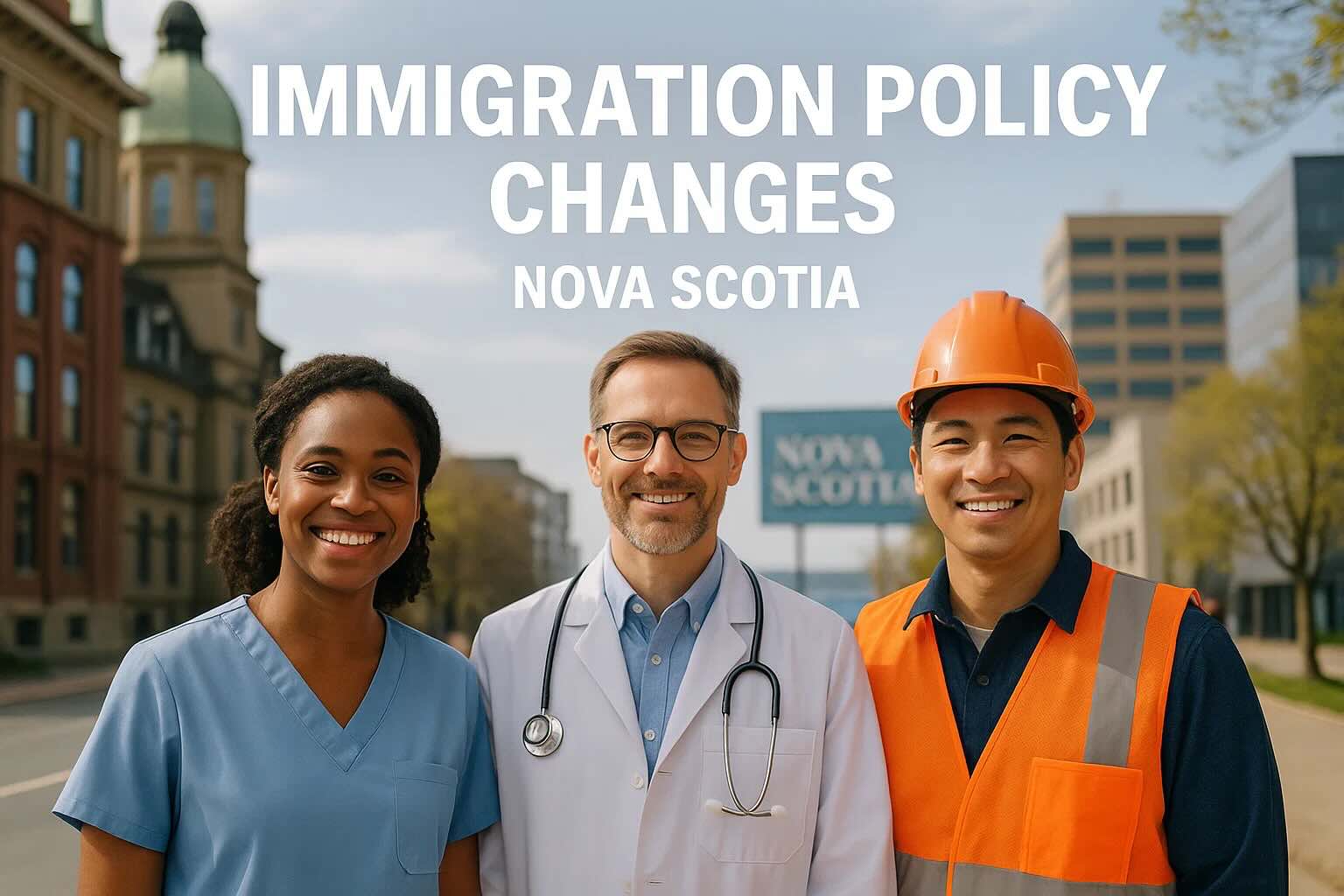As the core agency responsible for handling immigration, refugee, and citizenship applications, the processing efficiency of Immigration, Refugees and Citizenship Canada (IRCC) is a constant focus for global applicants. IRCC periodically updates estimated processing times for various applications, with some data updated weekly and others monthly, aiming to provide applicants with a general reference for waiting periods. However, these times can fluctuate due to multiple factors such as application volume, backlogs, staffing levels, and changes in policies and procedures.
IRCC emphasizes that processing begins upon receipt of a complete application: for online applications, this is upon successful submission; for paper applications, it's when the mail arrives at the IRCC mailroom. This report will detail the evolution of processing times for major immigration and visa application types over approximately the past year.
Changes in Permanent Residence Application Processing Times
1. Express Entry System
The Express Entry system includes the Canadian Experience Class (CEC), the Federal Skilled Worker Program (FSWP), and the Federal Skilled Trades Program (FSTP). Overall, processing times for programs under Express Entry have been the most stable over the past year.
- Canadian Experience Class (CEC): Current processing time is 5 months, unchanged from June 25, 2024.
- Federal Skilled Worker Program (FSWP): Current processing time is 5 months, unchanged from June 25, 2024.
- Federal Skilled Trades Program (FSTP): As of this writing, IRCC has not published current processing time data for FSTP. The data as of June 25, 2024, was 6 months.IRCC's service standard for this category is 180 days.
2. Provincial Nominee Program (PNP)
PNP is divided into "enhanced" streams aligned with Express Entry and "base" streams not aligned, leading to different processing times.
- PNP applications via Express Entry: Current processing time is 5 months, a slight decrease from 6 months a year ago.
- PNP applications not via Express Entry (base streams): Current processing time is 20 months, nearly double the 11 months from a year ago, a significant increase.
IRCC's service standards are: 11 months for base PNP applications submitted online; 180 days for Express Entry-aligned PNP applications submitted electronically.
3. Atlantic Immigration Program (AIP)
The AIP aims to attract skilled talent to settle in Canada's four Atlantic provinces.
Current processing time is 11 months, an increase from 7 months a year ago.A major advantage of this program is that applicants can apply for an employer-specific temporary work permit, valid for two years, while their permanent residence application is processed. IRCC has not published service standards for AIP applications.
4. Spousal Sponsorship
Canadian citizens and permanent residents can sponsor their spouse, common-law partner, or conjugal partner for immigration. Processing times vary by application class (inland SCLPC or overseas Family Class) and whether the couple intends to reside in Quebec.
- Spouse or Common-Law Partner in Canada Class (SCLPC), intending to reside outside Quebec: Current processing time is 29 months, a dramatic increase from 10 months a year ago (up by nearly 20 months), one of the most significantly changed categories.
- Family Class (overseas), intending to reside outside Quebec: Current processing time is 10 months, unchanged from a year ago.
- SCLPC, intending to reside in Quebec: Current processing time is 26 months, a slight decrease from 28 months a year ago.
- Family Class (overseas), intending to reside in Quebec: Current processing time is 36 months, a slight increase from 34 months a year ago.
IRCC's service standard for overseas Family Class (priority) applications is 12 months, but no service standard is published for SCLPC applications.
Changes in Temporary Residence Application Processing Times
1. Visitor Visas (TRV)
- Applications from inside Canada: Current processing time is 23 days, a slight increase from 20 days a year ago.
- Applications from outside Canada (varies by country of application):
- India: Currently 19 days, down from 44 days a year ago (significant reduction).
- Nigeria: Currently 100 days, down from 177 days a year ago (substantial reduction).
- United States: Currently 19 days, down from 27 days a year ago (some reduction).
- Pakistan: Currently 27 days, down from 110 days a year ago (significant reduction).
- Philippines: Currently 29 days, up from 21 days a year ago (some increase).
IRCC's service standard for visitor visa applications submitted outside Canada is 14 days. No specific data is published for in-Canada TRV applications.
2. Visitor Records
Used to extend stay or change status while in Canada.Current processing time is 161 days, a large increase from 88 days a year ago.
3. Work Permits
- Applications from inside Canada (initial and extensions): Current processing time is 238 days, more than double the 101 days from a year ago.
- Applications from outside Canada (varies by country of application):
- India: Currently 15 weeks, down from 19 weeks a year ago.
- Nigeria: Currently 12 weeks, down from 21 weeks a year ago (significant reduction).
- United States: Currently 9 weeks, down from 15 weeks a year ago (significant reduction).
- Pakistan: Currently 6 weeks, down from 31 weeks a year ago (substantial reduction).
- Philippines: Currently 6 weeks, down from 28 weeks a year ago (substantial reduction).
IRCC's service standards are: 60 days for initial work permit applications from outside Canada; 120 days for initial work permits and extensions from inside Canada.
4. Study Permits
- Applications from inside Canada: Current processing time is 5 weeks, a significant reduction from 14 weeks a year ago, more than halving the time.
- Applications from outside Canada: Country-specific data for June 2024 is unavailable for comparison. Current processing times for major source countries are:
- India: 10 weeks
- Nigeria: 5 weeks
- United States: 5 weeks
- Pakistan: 17 weeks
- Philippines: 17 weeks
- Study Permit Extensions: Current processing time is 55 days, a significant reduction from 236 days a year ago.
IRCC's service standards are: 120 days for initial study permit applications submitted within Canada; 60 days for study permit applications submitted outside Canada; 120 days for study permit extensions.
Citizenship and Proof of Citizenship Applications
1. Citizenship Grants
Current processing time is 10 months, an increase from 8 months a year ago.
IRCC's service standard is 12 months.
2. Citizenship Certificates (Proof of Citizenship)
Current processing time is 4 months, a slight increase from 3 months a year ago.
IRCC advises that applicants residing outside Canada or the US, or applying through a Canadian embassy, high commission, or consulate, should add an extra 3-4 months. Minors residing outside the US or Canada, or those who sent their application directly to the Case Processing Centre in Sydney (Nova Scotia), should add an extra 6-8 months.
Difference Between Processing Times and Service Standards
It is important to note the distinction between "processing times" and "service standards" published by IRCC.
- Processing Time: An estimate of how long a typical application might take to process, based on historical data and current application inventories. It is measured from the date IRCC receives the application until a decision is made. This is a dynamic reference value.
- Service Standard: An internal target set by IRCC for processing applications. The goal is to process 80% of applications within this standard, allowing for 20% of more complex cases to exceed it. Service standards are targets only and do not guarantee an application will be processed within that timeframe.
In conclusion, processing times for various Canadian immigration and visa categories have shown complex and varied trends over the past year. Applicants planning their journey or immigration to Canada should closely monitor IRCC's official website for the latest information and be prepared for potential fluctuations in processing cycles.









